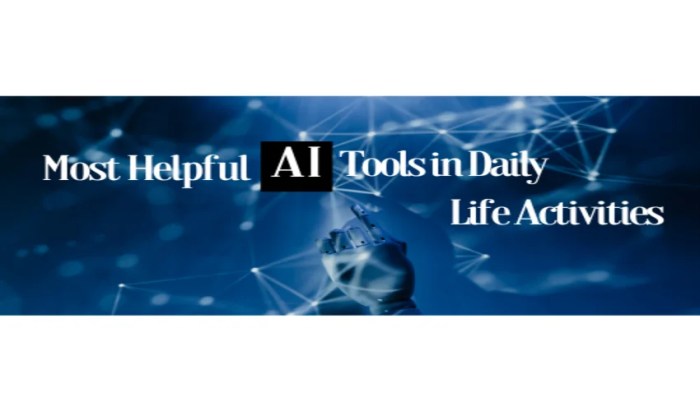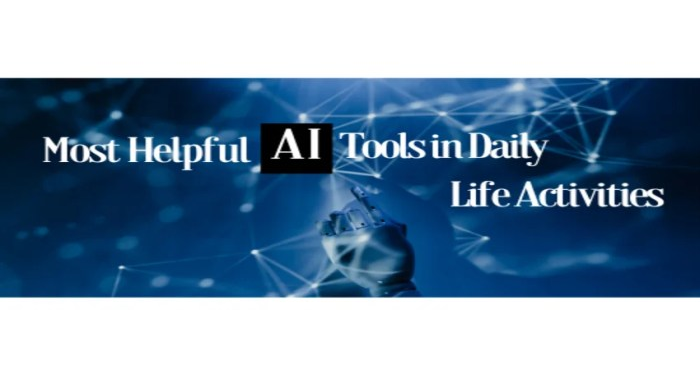Embark on a journey of enhancing productivity with Digilife productivity hacks using AI tools. In today's fast-paced digital landscape, leveraging artificial intelligence is key to optimizing efficiency and achieving more in less time. Let's explore how AI tools can revolutionize the way we work and manage our tasks.
Introduction to Digilife Productivity Hacks
In the modern era, Digilife productivity refers to the efficient management of tasks, workflows, and goals using digital tools and technologies. It involves leveraging digital resources to streamline processes, increase efficiency, and achieve more in less time.Utilizing AI tools is crucial in enhancing productivity in Digilife.
Artificial Intelligence offers advanced capabilities such as automation, data analysis, and predictive insights that can significantly optimize workflow and decision-making processes. By harnessing AI tools, individuals and businesses can save time, reduce errors, and improve overall productivity.
Popular AI Tools for Productivity
- Virtual Assistants: AI-powered virtual assistants like Siri, Alexa, and Google Assistant can help manage tasks, set reminders, schedule appointments, and answer queries, freeing up time for more important activities.
- Project Management Tools: Tools like Trello, Asana, and Monday.com use AI to streamline project planning, task assignment, and progress tracking, enhancing collaboration and productivity within teams.
- Smart Email Filters: AI-based email filters such as Gmail's Priority Inbox and Microsoft Outlook's Focused Inbox automatically categorize and prioritize emails, allowing users to focus on important messages first.
- Time Tracking Apps: AI-powered time tracking apps like Toggl and RescueTime analyze user behavior to provide insights on time management, productivity trends, and areas for improvement.
Time Management Strategies with AI Tools

AI tools play a crucial role in helping individuals optimize their time management skills. By leveraging artificial intelligence, people can streamline their schedules, prioritize tasks efficiently, and make the most of their available time. These tools can analyze work patterns, identify areas for improvement, and suggest ways to enhance productivity.
AI-Powered Calendar Apps
AI-powered calendar apps, such as Google Calendar or Microsoft Outlook, utilize machine learning algorithms to analyze user behavior and preferences. These apps can automatically schedule meetings, set reminders, and even predict potential scheduling conflicts. By integrating AI into calendar management, individuals can save time and ensure they stay organized.
Task Managers with AI Capabilities
Task management tools like Todoist or Trello integrate AI features to help users prioritize tasks based on deadlines, importance, and workload. These tools can analyze work patterns to identify peak productivity hours and allocate tasks accordingly. By leveraging AI capabilities, individuals can optimize their workflow and ensure they meet deadlines efficiently.
Optimizing Time Allocation with AI
AI tools can analyze data on how individuals spend their time, identifying time-consuming tasks or inefficiencies in their workflow. By providing insights into work patterns and habits, AI can suggest ways to optimize time allocation and improve overall productivity. With AI's ability to learn from user behavior, individuals can make informed decisions to make the most of their time.
Task Automation Techniques
Task automation using AI tools can significantly enhance productivity by eliminating repetitive manual tasks and streamlining workflows. By leveraging AI capabilities, individuals and organizations can save time, reduce errors, and focus on more strategic activities.
Setting up Task Automation with AI
Setting up task automation with AI involves identifying the repetitive tasks that can be automated, selecting the appropriate AI tool or software, configuring the rules or parameters for automation, and testing the automation process to ensure accuracy and efficiency.
Examples of AI Tools for Task Automation
- RPA (Robotic Process Automation) tools like UiPath and Automation Anywhere enable the automation of rule-based tasks such as data entry, form processing, and report generation.
- Workflow automation platforms like Zapier and Integromat allow users to connect different applications and automate workflows without coding.
- Cognitive automation tools like IBM Watson and Google Cloud AI can automate complex tasks that require cognitive abilities, such as natural language processing and image recognition.
Data Organization and Analysis
AI tools play a crucial role in helping individuals and businesses organize and analyze vast amounts of data efficiently. By leveraging the power of artificial intelligence, data management becomes more streamlined and productive. Let's explore the benefits of using AI for data organization and analysis, along with some examples of AI tools in this field.
Benefits of Using AI for Data Management
AI tools offer several advantages when it comes to data organization and analysis:
- Efficiency: AI algorithms can quickly categorize and structure data, saving time and effort in manual organization.
- Accuracy: AI systems can analyze data with precision, reducing human errors and ensuring reliable insights.
- Scalability: AI tools can handle large volumes of data effortlessly, accommodating the growing needs of businesses.
- Automation: AI can automate repetitive tasks in data management, freeing up human resources for more strategic activities.
- Insights: AI-powered analytics can uncover patterns and trends in data that may not be apparent through manual analysis.
Examples of AI Tools for Data Organization and Analysis
Here are some popular AI tools used for data management:
- IBM Watson:This AI platform offers a range of services for data analysis, including natural language processing and machine learning capabilities.
- Google Cloud AI:Google's AI tools provide solutions for data storage, analysis, and visualization, helping businesses make informed decisions.
- Microsoft Azure Cognitive Services:This suite of AI tools enables organizations to extract insights from data through image recognition, speech recognition, and more.
- Amazon SageMaker:Amazon's AI platform allows users to build, train, and deploy machine learning models for data analysis and prediction.
- Tableau:While not a traditional AI tool, Tableau uses AI-powered analytics to help users visualize and interpret data effectively.
Communication Enhancement with AI
AI tools have revolutionized the way teams communicate and collaborate, leading to improved productivity and efficiency in the workplace. By harnessing the power of artificial intelligence, organizations can streamline communication processes, facilitate better information sharing, and enhance overall teamwork.
AI-driven Communication Tools for Collaboration
- Chatbots: AI-powered chatbots can assist team members by providing real-time support, answering common queries, and automating repetitive tasks.
- Voice Assistants: Virtual assistants like Siri, Alexa, or Google Assistant enable hands-free communication, making it easier for team members to access information and stay organized.
- Collaboration Platforms: Tools like Slack, Microsoft Teams, and Asana use AI algorithms to prioritize messages, organize tasks, and facilitate seamless collaboration among team members.
Impact of AI on Streamlining Communication Processes
AI can analyze communication patterns, predict future trends, and suggest the most effective communication channels for different team members.
By automating routine tasks and providing data-driven insights, AI tools help teams communicate more efficiently, reduce misunderstandings, and make informed decisions faster.
Closure
As we wrap up our discussion on Digilife productivity hacks using AI tools, it's evident that incorporating AI into our daily routines can significantly elevate our productivity levels. By automating tasks, managing time effectively, organizing data, and enhancing communication, AI tools pave the way for a more streamlined and efficient work experience.
Embrace the power of AI to unlock your full potential in the digital age.
Essential FAQs
How can AI tools improve time management?
AI tools can analyze work patterns to optimize time allocation, helping individuals prioritize tasks effectively and make the most out of their day.
Which AI tools are best for task automation?
Some popular AI tools for task automation include Zapier, Integromat, and Microsoft Power Automate, offering seamless automation of repetitive tasks.
What are the benefits of using AI for data organization?
AI tools can efficiently organize and analyze data, enabling quicker decision-making processes and enhancing overall productivity in managing information.
How do AI-driven communication tools enhance collaboration?
AI-driven communication tools facilitate smoother interactions within teams, offering features like real-time language translation, smart replies, and automated meeting scheduling to streamline communication processes.





